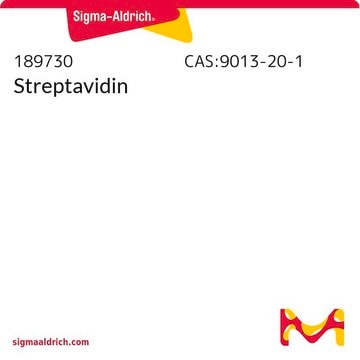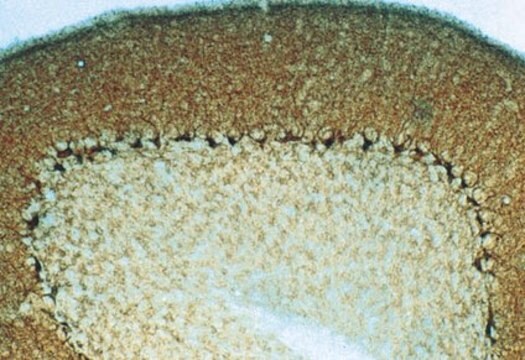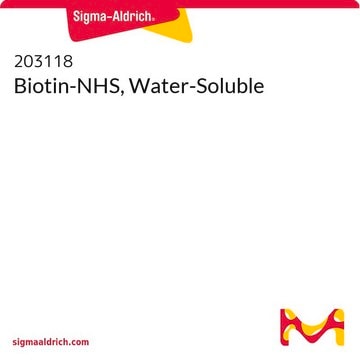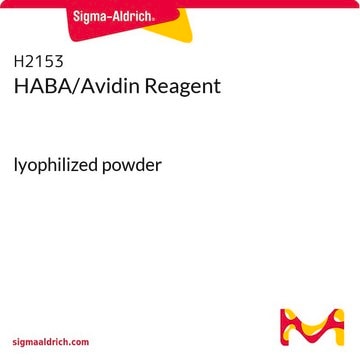BK101
ImmunoProbe™ Biotinylation Kit
Synonym(s):
Biotinylation Kits
About This Item
Recommended Products
storage temp.
2-8°C
Looking for similar products? Visit Product Comparison Guide
General description
Application
Features and Benefits
- Complete protocols for labeling and assay
- BAC-Sulfo-NHS is completely water soluble
- No DMF or DMSO needed
- Biotinylation occurs near neutral pH and physiological ionic strength, avoiding harsh conditions that could damage sensitive proteins
- Fast separation of conjugate from reactants using gel filtration
- 2-5 molar ratio biotin to protein in conjugate (for antibodies)
1 mg protein per reaction (B-TAG)
10 mg protein per reaction (BK-101)
• Sufficient reagents for at least 5 labelings
Packaging
Analysis Note
Conjugation is performed in four easy steps:
1. Reconstitute BAC-Sulfo-NHS with Phosphate Buffer (PB).
2. Add BAC-Sulfo-NHS to protein and allow to react for 30 minutes at room temperature.
3. Separate the conjugate from the reactants on gel filtration.
4. Assay the conjugate for biotin incorporation by the avidin-HABA assay (BK-101 only). Conjugate is ready to use.
Legal Information
Signal Word
Danger
Hazard Statements
Precautionary Statements
Hazard Classifications
Eye Irrit. 2 - Resp. Sens. 1 - Skin Irrit. 2 - STOT SE 3
Target Organs
Respiratory system
Storage Class Code
10 - Combustible liquids
Certificates of Analysis (COA)
Search for Certificates of Analysis (COA) by entering the products Lot/Batch Number. Lot and Batch Numbers can be found on a product’s label following the words ‘Lot’ or ‘Batch’.
Already Own This Product?
Find documentation for the products that you have recently purchased in the Document Library.
Customers Also Viewed
Related Content
Access high-quality reagents for antibody workflows, including adjuvants, blocking reagents, conjugation kits, and more.
Our team of scientists has experience in all areas of research including Life Science, Material Science, Chemical Synthesis, Chromatography, Analytical and many others.
Contact Technical Service














